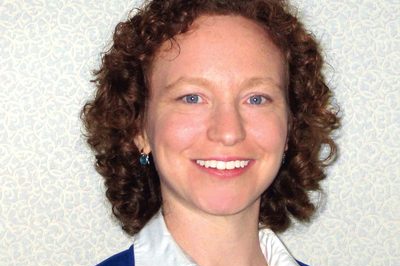“I felt that teenagers in particular were really affected by antigay prejudice,” said Academy Award-winning filmmaker Debra Chasnoff, “but so much of the conversation that’s been had to date about that prejudice has been solely focused on how homophobia affects youth who are self-identified as LGBT or questioning. While that’s incredibly important, it was leaving out the whole majority of the population.”
Her new documentary, “Straightlaced,” aims to change that. “I wanted to make a film that would open up dialogue about how everybody is really boxed in by homophobia and anti-female prejudice,” she explained.
The tragic suicide last month of 11-year-old Carl Joseph Walker-Hoover in Springfield, Mass., after prolonged antigay bullying, followed a week later by the suicide of Jaheem Herrara in Georgia for similar reasons, reinforced for Chasnoff exactly why “Straightlaced” was needed.
The documentary showcases the voices of about 50 teens from various states, in inner-city, suburban and rural schools, both public and private. The students are a mix of straight, LGBT, gender-queer and questioning, and from a variety of ethnic backgrounds. They discuss topics such as sexual pressures, cultural differences regarding gender and fears of ostracism or physical harm for being gay, as well as the effect gender pressures have had on their friendships and self-image.
Many defy our expectations. There are straight boys taking ballet and a straight girl who is most comfortable in boyish, baggy clothes; others have been called gay for being too romantic or crying after a breakup. Some simply discuss the pressures they feel to dress or act in certain ways in order not to be seen as gay, and several express their uncertainty about how to react when peers make anti-LGBT remarks. There is also a range of LGBT and gender-queer students, including a gay Eagle Scout and track star, a bisexual cheerleader and a transgender student who transitioned in high school, among others.
Chasnoff began “Straightlaced” over four years ago as part of the Respect for All Project, an initiative of her nonprofit media company GroundSpark. The project also includes “That’s a Family,” a film for elementary students about different family structures; “Let’s Get Real,” about name-calling and bullying in middle schools; and “It’s Elementary” (now re-released with updates as “It’s STILL Elementary”), a film for and about educators discussing gay issues in schools.
Despite her long immersion in these issues, Chasnoff said that in making “Straightlaced,” “I was really stunned at the extent to which homophobia is a huge — a huge — factor in people’s lives today. Just the number of ways so many students were able to roll off the tip of their tongue all the things they couldn’t do or they would be perceived as gay … I was really, really moved by how pained they all were.”
For all its painful topics, however, “Straightlaced” still offers hope, not only in the commitment of some of the students to expressing their true selves, but also in the support many of them show to friends who are challenging gender norms.
In spite of the recent suicides, Chasnoff does think things are changing for the better. “The huge growth of gay-straight alliances, for example, is a really powerful indicator of the beginning of a culture change on this,” she reflected, although she affirmed that in the vast majority of high schools, it is still not safe to be openly gay or gender-nonconforming.
How do we then reach out to the schools and students who most need to hear the film’s message? “That’s always the hardest challenge,” Chasnoff said, but added she is “cautiously optimistic.” When “It’s Elementary” first came out, in 1996, people told her it would never get shown in the South. Last year, the film had public screenings in Alabama, and GroundSpark was invited back this year to conduct training for teachers on homophobia.
Change happens in stages, however. “It takes individuals and a community finding each other and beginning to advocate for some step,” she explained. “You may not be having the gay and lesbian pride assembly at your school next week, but you could show a film to your faculty and have a conversation about what that brings up about what’s going on in your school. There are small steps that people can take.
“I think the great thing about the films that we have produced,” she said, “is they do the job of touching people’s hearts and getting them in the room and focused.” Afterward, it is easier to turn the discussion toward similar issues in their own schools.
So far, the response to “Straightlaced” has been very positive. “We’ve had youth standing up in the audience afterward screaming at us, ‘I love this film!’” Chasnoff said. “To adults, gay, straight, young, old, all different races, people seem to find somebody in the film that they really relate to, and it’s always a different person in the film.” Many people have approached her afterward about using the film in schools, at conferences or just showing it to friends and family.
Chasnoff and GroundSpark are now raising funds to distribute the film and produce ancillary materials, including a curriculum guide, a professional development program for school staff and a discussion kit for parents. As part of the campaign, they will be screening “Straightlaced” at theaters and film festivals around the country. A full distribution program will begin in the fall, making the film a great resource for the new school year.
Dana Rudolph is the founder and publisher of Mombian (www.mombian.com), a blog and resource directory for LGBT parents.
